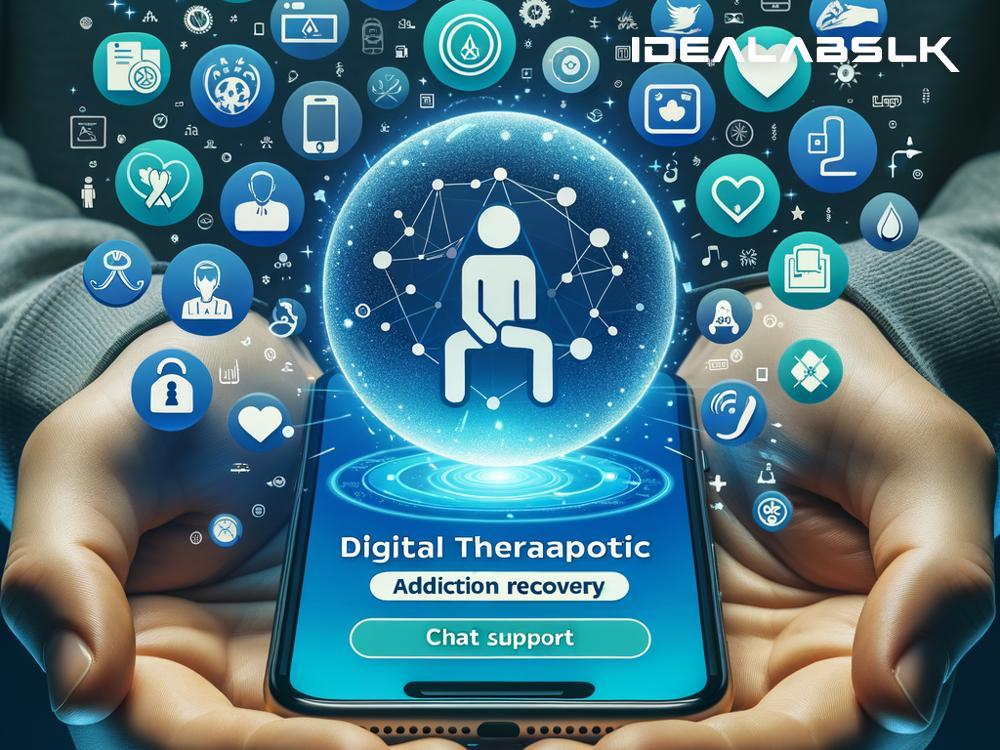How Digital Therapeutics are Helping Treat Substance Abuse: Innovative Solutions in Addiction Recovery
The world of healthcare is witnessing a remarkable transformation, thanks to the power of digital technology. An exciting area where this change is making a significant impact is in the treatment of substance abuse. Enter the era of Digital Therapeutics (DTx) - innovative digital solutions specifically designed to address and manage addiction recovery in ways we haven't seen before. In this article, we'll dive into how these digital tools are revolutionizing the journey towards recovery for individuals battling substance abuse.
What are Digital Therapeutics?
Before we delve into their role in substance abuse treatment, let's first understand what Digital Therapeutics are. Essentially, they are health programs you can access on your smartphones, tablets, or computers. These tools are not just any ordinary health apps; they're backed by scientific research and often regulated by health authorities, designed to prevent, manage, or treat a health disorder or disease.
The Digital Fight Against Substance Abuse
Substance abuse poses a complex challenge, affecting not just physical health but also mental well-being. While traditional treatments like counseling and support groups have their place, digital therapeutics bring a whole new dimension to the table. Here's how:
-
Accessibility: One of the most significant advantages of DTx is its accessibility. For many dealing with substance abuse, the stigma, financial constraints, and logistical issues can be barriers to seeking help. Digital therapeutics break down these barriers, allowing individuals to access treatment whenever and wherever it’s convenient for them.
-
Personalization: No two journeys to recovery are the same. Digital therapeutics can be tailored to meet the unique needs of each individual. By analyzing personal data, these tools can offer customized support and adjust treatment plans in real-time, enhancing the chances of success.
-
Engagement and Motivation: Staying motivated can be particularly challenging for those trying to overcome addiction. DTx solutions often incorporate elements like gamification, where users receive immediate feedback and rewards for completing certain tasks or reaching milestones. This can boost motivation and engage users more effectively in their treatment process.
-
Privacy and Anonymity: Dealing with substance abuse can often bring about a sense of shame or fear of judgement, deterring individuals from seeking help. Digital therapeutics offer a level of anonymity, allowing users to embark on their recovery journey in a private and non-judgmental space.
-
Comprehensive Support: Many digital therapeutics also integrate various aspects of treatment, including elements of behavioral therapy, stress management, and education about substance abuse. This holistic approach addresses not just the physical cravings but also the psychological aspects of addiction.
Real-World Impact and Examples
The potential of digital therapeutics in treating substance abuse is not just theoretical. Various programs have shown promising results. For instance, reSET®, the first FDA-approved digital therapeutic for substance use disorder, has demonstrated its effectiveness in increasing abstinence and treatment retention in clinical trials.
Another example is Quit Genius, which delivers a personalized digital therapy program for addiction to nicotine, alcohol, and opioids. Through cognitive-behavioral therapy techniques, mindfulness training, and support from certified coaches, it offers a comprehensive strategy to overcome substance dependence.
The Road Ahead
Despite the promising advances, the journey of fully integrating digital therapeutics into mainstream addiction recovery is still in its early days. Issues like ensuring privacy, improving user engagement, and establishing insurance coverage for DTx solutions need addressing. Moreover, while digital tools can offer significant support, they may not entirely replace the need for human connection and support networks for some individuals.
Closing Thoughts
Digital therapeutics are opening new doors in the fight against substance abuse, offering innovative, accessible, and effective tools for addiction recovery. By complementing traditional therapies with these digital solutions, we are moving towards a more inclusive, personalized, and practical approach to treatment. As technology continues to evolve, the future of addiction recovery looks promising, with digital therapeutics playing a central role in helping individuals reclaim their lives from addiction.

